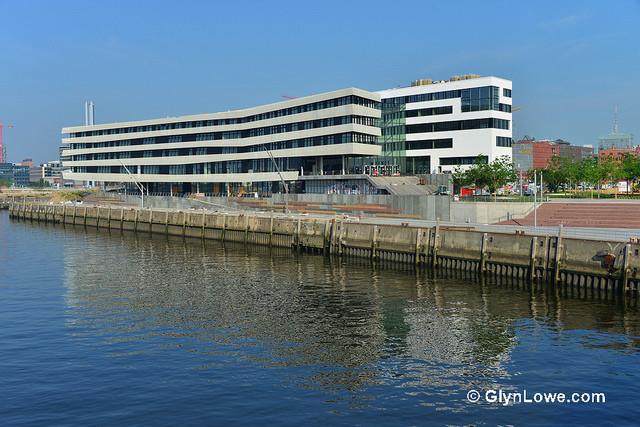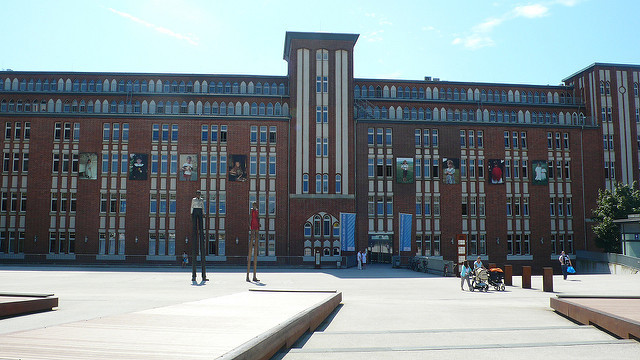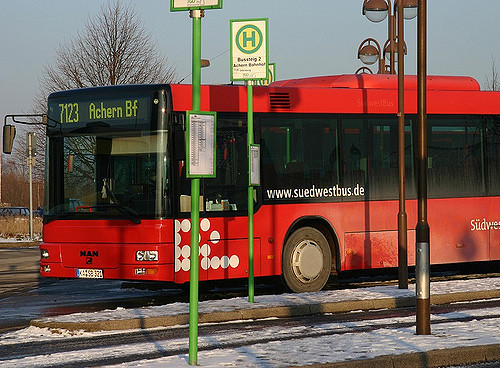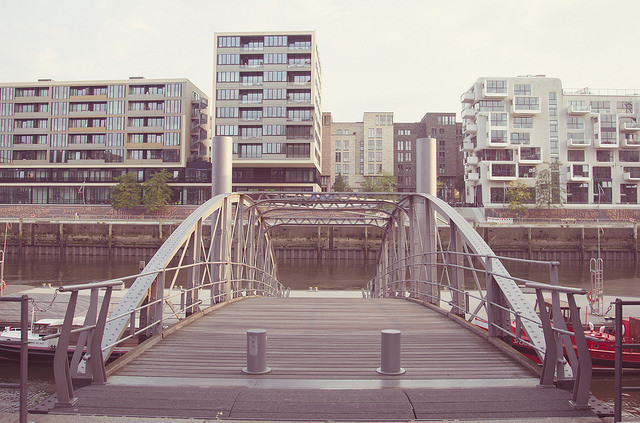General advice for those going to Germany on their Erasmus Placement. 11-12
Given that the influx of Erasmus students over the last few years has increased every time, especially those who apply undertake courses at a German university, I have decided to include a special section in this blog just for them.
It would be advisable to read this - Studying in Germany - before my article to get an idea of what studies are like here in Germany.

Academic aspects
One of the first main problems that a student faces when they go to another university is the study plans and the examination system in place, which can be very different. This happens even within different German universities.
As the Erasmus student needs to confirm the subjects that they took during their placement when they return to their home university, the problem of choosing subjects to take arises.
In Germany, the universities take pride in having great flexibility with their timetable offers and this can vary quite a lot from one semestre to another. To be able to plan for this, at the end of every semestre the university edits a book that contains a list of all the subjects that will be taught at the university during the next semestre (Vorlesungsverzeichnis). Furthermore, the student representatives (Fachschaften) usually have lots of programmes that list all the content for each subject that they will share with you.
So, at the start of the semestre, each student should choose the subjects that they want to take. Attention: in contrast to Spanish universities, German universities have a a single registration fee (between 60 and 200 euros) and it is independent from the subjects that you take.
On your first day, the professor will explain to the students what they need to accomplish in order to pass the subject. Sometimes it is enough to just hand in your assignments, and other times there is an exam to take (Klausur), or a seminar.
Finally, students will receive a certificate (Shein) if they have passed the course. This certificate has a final grade, made up from the grades received from the first term exams (Vordiplom), and also the final course exams (Diplomprüfungen). If the Erasmus students need a specific grade in order to confirm the subject at their home university, those students should clarify that at the start of the semestre with their corresponding professor.

Official documents and information
Here I have included a list of all the documents and information that I would advice for to bring with you to Germany:
- Passport: Although this isn't strictly necessary, as in theory your ID is enough, it would be convenient to bring it with you as well. It could be useful in the future if you wanted to make a trip to the Eastern part of the country.
- Letter of acceptance from your host German university.
- E111 Social Security Form, or another document equivalent to this if you are insured by a mutual insurance company.
- Entrance certificate and Academic Record with sworn translations into German. This may be necessary when applying for an internship contract.
- ID Photos.
- Certificate of economic credit (signed by parents). This is not always necessary, but it is sometimes required when registering with local authorities (Einwohnermeldeamt).
Once you have arrived in Germany and have a fixed address, you have the obligation to register with the local authorities, the Einwohnermeldeamt. Normally the universities do this, or help you do this. In the local authorities office, you will need to present your passport and a copy of your rent agreement, or another document or certificate that confirms your address.
Attention: in the form that you have to complete, they will ask you what religion you belong to. This is only to know what church to pay the taxes to. If you leave it blank, they will not pay any religious taxes.
At the end of this process you will obtain a residency permit and a copy of the form that confirms your address. Then we are controlled by the German State.
If you want to find work during your studies (see: Advice for job seekers), you need a tax card (Lohnsteuerkarte). This is a card that can be applied for at the Lohnsteuerkartenstelle once you are registered at the Einwohnermeldeamt.
If you have a TV or radio, you need to register with the GEZ (Gebühreneinzugszentrale) so that you can pay the corresponding license fees. Students are exempt from this tax, but you must apply in writing. Failure to do so could result in an expensive joke.

Bank Account
In many places you can pay with card (Visa, Eurocard, etc. ), therefore it would be advisable to bring one of these from Spain.
Given that many payments (rent, phone, etc. ) can usually be paid via bank transfer, it is interesting to open a well operated bank account in Savings Bank (Sparkasse), or another bank.
Students are exempt from the bank maintenance fees of the account. This you will need to ask for when opening the account.
You can also ask for a service card from the bank (Sevicecard), or a credit card: EC-Karte Kreditkarte. This last one is only granted after 3 months, after the account has been opened and regular income is available.

Social Security
In Germany, the Social Security number process works in a very different way to how it works in Spain. In Germany, you pay into one of the mutual insurance companies (Krankenkasse), which gives you a special card. With this card, you can go to the doctor of your choice if necessary, and the doctor will charge you directly from the mutual insurance company.
Students who come from Spain with an E111 form can apply to the Mutua General: the AOK (Allgemeine Ortskrankenkasse), and get a certificate of insurance (Versicherungsnachweis) from there. It is necessary to have this proof in order to register at the university or if you are to get a job.
Accommodation
Usually, the host university goes through its Foreign Office (Auslandsamt) and provides housing for newly arrived Erasmus students. If this is not of interest to you, you can look for a place to live on your own. If this is your case, there are several possibilities for you:
- Apartments (individual, double, etc. ) at the university (Studenten Wohnheime)
- Apartments in the religious communities: ESG (Evangelische Studentengemeinden) or KSG (Katolische Studentengemeinden)...
- Shared flats with other students: WG (Wohngemeinschaft). In the catine (university kitchen) there are usually lots of notice boards with offers on them
If you need furniture for the apartment, you can find good and cheap deals at the flea markets (Flohrmarkt) that occur every weekend.

Language courses
Your host university usually offers intensive German language courses for the students who have recently arrived. Furthermore, during the course there are other courses with different levels.
Other possibilities are the private courses (which are expensive) and the popular schools (Volkshochschule) (which are cheaper), that also offer general courses which have different levels throughout the year.
If you want to study another language (English, French, Italian, etc. ) you can access one of the many free courses that the university has. You need only sign up on the dates provided for them.
Transport. Travelling in Germany
One of the most common forms of transport with student in germany is the bicycle: it's comfortable, practical and economical. There are usually many bike lanes throughout both the city and the outskirts which make it a lot easier to get around. You can easily buy a second-hand bicycle for 40 or 50 euros at a flea market or even by looking in some announcements.
Public transport in Germany is very interesting, as it is very punctual. Many universities have agreements with public transport providers in the way that buses, trams and trains close to the university is free for students with their Studiticket. It is recommended to inform yourself about this in your corresponding university.
Signing up for a course in one of the popular schools (Volkshochschule) grants the right to make the journey necessary to travel to the course free of charge (one hour before the start of the course and one hour after the start of the course, public transport can be used free of charge).
Another important details about public transport is that, on most trains and buses, you can get bring your bike on with you, so you can combine the two modes of transport together for the easiest journey possible.
During the times when you want to go on a day out or a trip to other cities, there are many different possibilities of doing so:
- 1. The train (Deutsche Bahn)
The train works very well in Germany as it has an extensive communications network and great punctuality. The main inconvenience is that it is quite expensive, despite the student discount.
If you travel a lot by train, it would be advisable to buy the Deutsche Bahn card (Bahnkarte). This costs 120 euro for students up to the age of 36 and it allows you to go on as many trips as you like during the year with a 50% discount on prices.
There are also especially cheap tickets during the weekends on the commuter train lines (Wochenendticket), or for those younger than 26 years old (TWEN_TICKET). It would be advisable to inform yourself well about all these possibilities.
- 2. Shared trips (MFG: Mitfahrgelegenheit)
There is also the chance to share the price of petrol with someone who is driving by car to a specific city or place. In university and in many cities there are offices or other places where they can help to put you in contact with people who want to travel to a similar destination as you (Mitfahrzentrale). This option is also quite cheap.

Jobs
In Germany it is very normal for students to work during term-time, and even during the holidays too.
In your own university there usually will be employment officers that promote part-time student jobs of all kinds (Jobvermittlung).
Another possibility is to do an internship with a professor. In order to find one of these offers, make sure you look regularly at the department announcements or in the institute of the university, or simply ask your professors.
If your monthly income is more than 590 euro (Westdeutschland) or 500 euro (Ostdeutschland) you are obliged to pay taxes on that earned income (Lohnsteuer), so you will need a wage tax card (Lohnsteuerkarte) - see section on documents.
On the other hand, taxes are not paid as long as you work no more than 20 hours per week during the semester or during the semester holidays.
Monthly expenditure
The following are the most common monthly expenses that a student who lives in a city in the former area of Westdeutschland usually has. The East (Ostdeutschland) is usually cheaper.
- Rent (including heating): 250 to 400 euro
- Electricity: 20 euro
- Telephone: 40 to 80 euro
- University fees maximum: 200 euro, 30 euro/semester
- Meals: between 4 and 5 euro
- Food and groceries: 250 to 350 euro
The most important one is rent, which depends to a large extent on whether it is an individual or a shared apartment.
Naturally these would be the basic expenses, to which other expenses such as excursions, trips to Spain, etc. are added. This is something that will differ greatly from person to person.

Photo gallery
Content available in other languages
Want to have your own Erasmus blog?
If you are experiencing living abroad, you're an avid traveller or want to promote the city where you live... create your own blog and share your adventures!
I want to create my Erasmus blog! →






















Comments (0 comments)